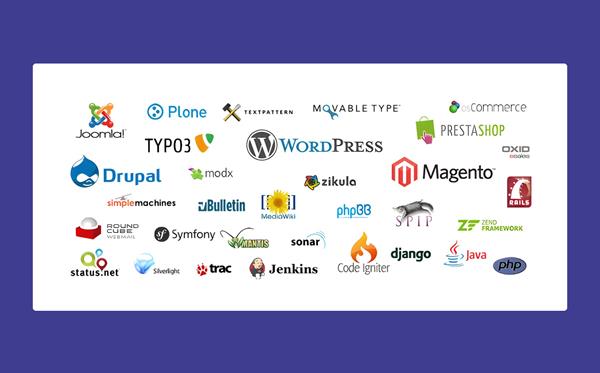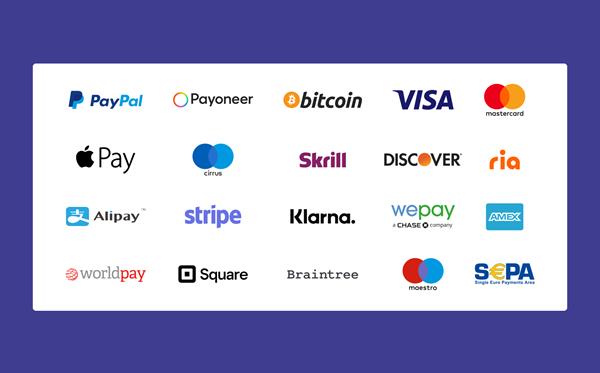The Impact of Digital Trends on E-Commerce Growth

Digital trends are continuously shaping the e-commerce landscape, influencing how businesses engage with customers, improve efficiency, and drive sales. Staying ahead of these trends allows companies to remain competitive and cater to evolving consumer expectations. Below, we explore some key trends that are revolutionizing e-commerce.
1. Artificial Intelligence and Machine Learning in E-Commerce
Artificial intelligence (AI) has become one of the most transformative digital trends in recent years. Businesses are now using AI to analyze large volumes of data, automate processes, and personalize the customer experience. AI-powered tools can predict customer behavior, make product recommendations, and even tailor marketing efforts.
Machine learning, a subset of AI, further enhances this by allowing systems to learn from data and improve over time. E-commerce businesses use machine learning algorithms to identify patterns in customer purchases, optimize pricing strategies, and provide more accurate product recommendations. This technology helps businesses increase sales while offering a more personalized shopping experience.
For example, online retailers like Amazon have been using AI-driven recommendation systems for years to suggest products based on a user’s browsing and buying history. This personalized approach has proven to be highly effective in driving sales and increasing customer retention.
2. The Rise of Voice Commerce
Voice commerce is another rapidly growing trend in the e-commerce world. With the increasing use of voice-activated assistants like Amazon Alexa and Google Assistant, more consumers are starting to shop using voice commands. This hands-free shopping experience is convenient and quick, allowing customers to find products, check prices, and place orders using only their voice.
Voice commerce is particularly popular among mobile users who are looking for fast and easy ways to shop while on the go. Businesses that integrate voice commerce capabilities into their platforms can tap into this growing market and provide a more seamless experience for their customers.
Integrating voice commerce into e-commerce platforms requires optimizing product listings for voice search, ensuring that key product information is easily accessible through voice queries. Companies that adopt this technology early will likely gain a competitive edge as voice commerce becomes more widespread.
3. Mobile Shopping and Mobile-First Design
Mobile shopping continues to dominate the e-commerce space, with more consumers using smartphones and tablets to browse and purchase products. A mobile-first design approach ensures that e-commerce websites are optimized for mobile devices, providing a smooth and user-friendly experience.
Mobile-optimized websites load quickly, are easy to navigate, and offer simple checkout processes, all of which contribute to a higher conversion rate. Additionally, features like mobile payment options (Apple Pay, Google Pay) and one-click checkout make it even easier for users to complete their purchases on mobile devices.
Businesses that haven’t yet adopted mobile-first design risk falling behind, as more and more consumers expect seamless shopping experiences across all devices.
4. Social Commerce and Influencer Marketing
Social commerce involves selling products directly through social media platforms like Instagram, Facebook, and TikTok. With social commerce, businesses can reach consumers where they spend much of their time online, reducing the friction between discovery and purchase.
Influencer marketing is another powerful tool that complements social commerce. By partnering with influencers who have large followings, businesses can leverage their credibility and reach to promote products to specific target audiences.
The integration of shopping features within social media platforms, such as Instagram’s “Shop Now” and TikTok’s “Shop” buttons, makes it easier for users to purchase products without leaving the app. This trend continues to grow as more consumers rely on social media for product discovery and recommendations.
5. Sustainability and Ethical Consumerism
As consumers become more conscious of environmental and ethical issues, businesses are shifting toward more sustainable practices. E-commerce companies that prioritize eco-friendly packaging, carbon-neutral shipping, and ethically sourced products are attracting a growing base of eco-conscious consumers.
Many consumers are willing to pay more for products that align with their values, making sustainability a significant factor in purchasing decisions. Brands that focus on transparency, sustainable practices, and social responsibility are building stronger connections with their audience and fostering long-term loyalty.
6. The Role of CIQRA in Adopting Digital Trends
CIQRA is well-positioned to help businesses stay ahead of these digital trends. The platform’s customizable infrastructure supports the integration of AI, voice commerce, and mobile-first design, enabling businesses to enhance customer experiences and streamline operations.
With CIQRA’s API integrations, businesses can easily adopt social commerce strategies, connect with influencers, and provide a seamless shopping experience across all devices. CIQRA’s flexibility allows businesses to adjust to new consumer expectations, ensuring they remain competitive in an ever-evolving digital landscape.
Conclusion
Digital trends are driving rapid changes in the e-commerce industry. From AI-powered personalization to mobile-first design and voice commerce, businesses must adapt to these trends to meet customer expectations and stay competitive. CIQRA’s platform provides the tools and flexibility needed to embrace these trends, ensuring businesses can innovate, grow, and succeed in the digital world.
Sources:
- Salesforce: https://www.salesforce.com/
- McKinsey & Company: https://www.mckinsey.com/
- Forbes: https://www.forbes.com/
- Nielsen: https://www.nielsen.com/
- Statista: https://www.statista.com/
- BigCommerce: https://www.bigcommerce.com/




































